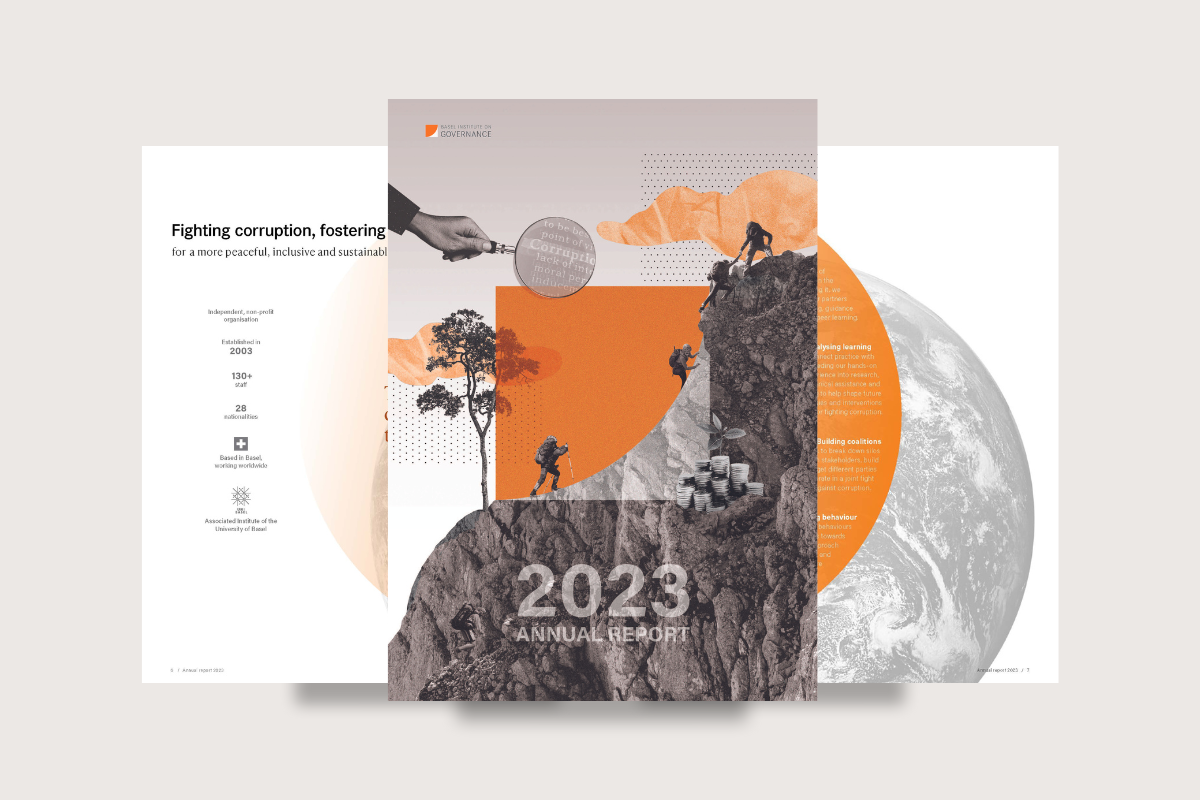2023 Annual Report: Foreword by Peter Maurer

Published today, the 2023 Annual Report of the Basel Institute on Governance features seven stories from our work around the world to promote good governance and counter corruption.
The stories showcase different ways in which we collaborate with partners globally to advance knowledge, practice and policy on anti-corruption, asset recovery and business integrity. They illustrate not just what we do, but how we work to achieve real and lasting progress towards a more peaceful, just and sustainable world.
Read the foreword by Peter Maurer below and download the annual report.
The final preparations of this annual report were overshadowed by the tragic news that Gretta Fenner, Managing Director of the Basel Institute on Governance for nearly two decades, had passed away in a car accident in Kenya on 6 April 2024.
While we continue to be deeply saddened by the loss, we also know that Gretta was immensely proud of the Basel Institute’s achievements in 2023, as well as of the progress made over the Institute’s 20 years of existence – the latter, a large part of her legacy.
And there are indeed many reasons to be proud and optimistic. While corruption scandals hit the headlines, the more important stories of anti-corruption progress tend to advance quietly over years. Many of the standout achievements in this annual report are not just from 2023.
Second, anti-corruption tools yield benefits that go far beyond the immediate goal of reducing corruption risks. For example, when we provide advice to companies on compliance and multi-stakeholder Collective Action (page 18), the goal is not merely to reduce the risk of compliance-related violations but to foster resilient, ethical companies, fair competition and thriving industries.
A third reason for optimism is that corruption is finally appearing on the agenda where it really matters – notably in the environmental sector. Our Green Corruption team has been working hard to embed anticorruption and asset recovery tools in the environmental sphere, and to build bridges between the anti-corruption and conservation communities (pages 14 and 17).
At the Basel Institute, connections like these feed into our evolving understanding of corruption and of the changing tactics of power brokers on the political and geopolitical stage. From a narrowly defined legal concept, corruption has become a phenomenon that connects the biggest issues of our time.
What global challenge is not caused or worsened by misuses of power and influence, with the aim of benefitting the few over the many?
As Gretta said at the Munich Security Conference shortly before her passing, the old idea of corruption as “just” bribery causes us to overlook patterns of behaviour that have long-term, systemic impacts on both national and global stability.
So, while we are a centre of technical competence, and advise governments worldwide on their laws and policies on corruption and asset recovery, the solutions we bring are never isolated from their political and social context.
And we use behavioural science to better understand what really causes corrupt behaviour, and what might work to shift social norms towards compliance with laws, codes of ethics and other elements of the formal anti-corruption and anti-money laundering architecture.
That is also why a big focus of our work is on engaging and connecting with others in the anti-corruption, asset recovery and business integrity fields, and beyond. Even if, or rather especially if, they have competing priorities. Only through negotiation and dialogue can one forge the type of common understanding and consensus that form the basis of effective and concerted action against corruption.
As the stories in this annual report show, the trust and partnership of our donors and collaborators are vital in order for us to make progress in often turbulent and unpredictable political contexts. We are deeply grateful to those who support our ultimate goal of fighting corruption for a better world, who trust our way of working and who are willing to invest for long-term success.
By jointly designing interventions and building in flexibility, we can continue to leverage our individual and collective resources, achieve greater impact and relevance and keep alive Gretta’s legacy over the Institute’s next 20 years and beyond.



